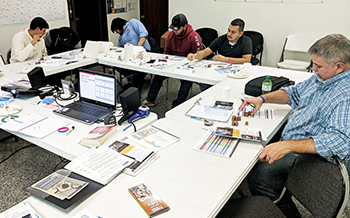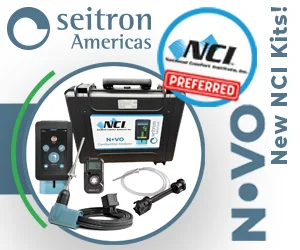As an HVAC company owner, training is very important to me. I have owned Baggett Heating and Cooling since 2006 and believe that our success depends on our technicians being up-to-date on current technology and tools so they can take the best care of our customers as possible.
As the hiring pool of well trained, experienced technicians shallows, we are choosing to recruit the right candidates and build professional technicians in house.

In the last 12 months we have added several new team members and we are committed to upping our game and simply put, being better than everybody else regarding the technical side of the business.
Doing this requires a lot of training. We want all techs, regardless of experience or seniority, to develop new and better skills and be up-to-date on new techniques, products, and so on.
After all, iron sharpens iron and our more senior techs need to be refreshed, on top of changing trends, and on top of their game in order to lead our freshest crop of technicians.
In the last few years, I have found that web-based and virtual training classes best fit my team here at Baggett. Why? It may make sense to first talk about our approach to traditional training to help explain how virtual training is better meeting our needs today.
Traditional Training

contractor’s training room, at a distributor’s
facility, or a third-party training center.
Over the years it’s been commonplace for in-person training offerings to be provided by manufacturers and distributors, as well as trade associations. But I haven’t always been pleased with the quality of topics or information shared.
When it comes to the training provided by manufacturers, I find it most often to be more product related than fundamental, technical training. In fact, I’m very wary of sending my technicians to anything the manufacturers teach because that “training” often ends up being simply a product showcase.
I completely understand why they want their products in front of our technicians, but our technicians’ time is much better spent in the field solving customer’s problems than in a sales presentation. I think other levels of sales or management are better positioned to attend these showcases and to determine product offerings that most align with company goals.
Our local distributor recently hired a new service advisor with an educational background and I believe there is a lot of potential there. I’m pleased that his training so far has been well prepared and stays on topic. He recently met personally with my team and had one formal training class on diagnosing refrigeration problems. We had another in April on airflow. I am impressed with what he has done so far.
As we continue to build our own techs, using training mentors engaged in daily, on-the-job training, is an important part of this process. I have two senior techs who are mentoring and informally teaching most days. We recently began holding a 15-to-30 minute tech meeting every morning. This is an organizational way of starting the day with an added training element we call “tech talk.” Some mornings techs come in, get their job assignment, then head out. On other mornings they’ll spend more time talking about issues that have occurred on recent maintenance or service calls.
Click Below for the Next Page:













Recent Comments